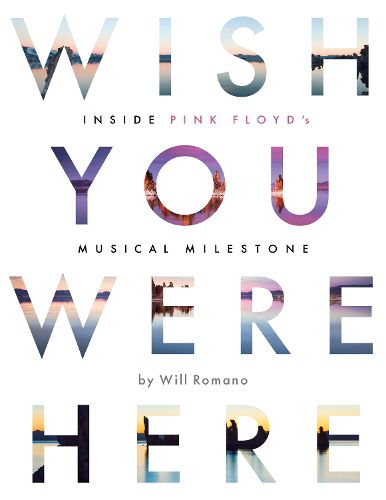Readings Newsletter
Become a Readings Member to make your shopping experience even easier.
Sign in or sign up for free!
You’re not far away from qualifying for FREE standard shipping within Australia
You’ve qualified for FREE standard shipping within Australia
The cart is loading…






The mid- 70s were a time of reckoning. It was also an era of paradoxes, of record making and record breaking, of sold-out shows, and, in the minds of some, sell-out artists. Critics, who once exalted the shamanic characteristics of rock stars, launched full-frontal assaults on mainstream music icons and their tendencies toward overindulgent artistic visions. Amid this confusion, psychedelic and progressive rock pioneers Pink Floyd, unlikely messengers in uncertain times, unleashed their 1975 progressive rock milestone, Wish You Were Here. Refusing to buckle under pressure, Floyd looked inward to produce Wish You Were Here, a conceptual, self-referential album that spoke of spiritual depravation, mental absence, and industry corruption, while, perhaps inadvertently, reflecting the general madness and societal malaise of the mid- 70s. Created in the spirit of camaraderie, Wish You Were Here waged war against the system, better known in Floydlandia as The Machine, while paying tribute to a fallen hero and victim of the industry the creative force fundamental to the band s existence, Syd Barrett. As our world was racked by unsustainable overseas military conflicts, governmental scandals, political assassination attempts, and a near-total erosion of the public trust, Pink Floyd emerged victorious, responding to this external dissonance with their ultimate band statement. What a strange, complex moment in time to have generated a classic. After 1975, Pink Floyd would never be the same and neither would we.
$9.00 standard shipping within Australia
FREE standard shipping within Australia for orders over $100.00
Express & International shipping calculated at checkout
The mid- 70s were a time of reckoning. It was also an era of paradoxes, of record making and record breaking, of sold-out shows, and, in the minds of some, sell-out artists. Critics, who once exalted the shamanic characteristics of rock stars, launched full-frontal assaults on mainstream music icons and their tendencies toward overindulgent artistic visions. Amid this confusion, psychedelic and progressive rock pioneers Pink Floyd, unlikely messengers in uncertain times, unleashed their 1975 progressive rock milestone, Wish You Were Here. Refusing to buckle under pressure, Floyd looked inward to produce Wish You Were Here, a conceptual, self-referential album that spoke of spiritual depravation, mental absence, and industry corruption, while, perhaps inadvertently, reflecting the general madness and societal malaise of the mid- 70s. Created in the spirit of camaraderie, Wish You Were Here waged war against the system, better known in Floydlandia as The Machine, while paying tribute to a fallen hero and victim of the industry the creative force fundamental to the band s existence, Syd Barrett. As our world was racked by unsustainable overseas military conflicts, governmental scandals, political assassination attempts, and a near-total erosion of the public trust, Pink Floyd emerged victorious, responding to this external dissonance with their ultimate band statement. What a strange, complex moment in time to have generated a classic. After 1975, Pink Floyd would never be the same and neither would we.